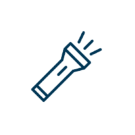
Contexte
You will find here the summary report of the OPIN/MEA webinar “Standardisation and certification for offshore renewables” held online on 19/05/20.
Standards and associated certification schemes can support the development of Offshore Renewable Energy (ORE) technologies, by reducing the risk of failure and increasing stakeholders confidence.
This webinar provided an overview of the benefits from standardisation and certification, progress on the codes and standards to date, and lessons learnt from ORE stakeholders who went through the certification process.
The webinar was co-organized by WEAMEC and DMEC, as part of the Ocean Power Innovation Network (OPIN) and Marine Energy Alliance (MEA) projects, both financially supported by Interreg North West Europe.
Standardisation and certification for offshore renewables
Highlights of the day
- 140 participants: industrials, academics, start-up, etc. from 20 countries (France, UK, Ireland, Netherlands, Indonesia, Vietnam, Canada, etc.)
- 5 speakers from 4 organisations:

Summary
The webinar recording and all presentations are available at the bottom of the page.
- Introduction to the Ocean Power Innovation Network, , WEAMEC
WEAMEC is one of the founding partners of the Ocean Power Innovation Network (OPIN). OPIN is a European collaborative network that aims to encourage both cross-sectoral and cross-regional collaboration for Offshore Renewable Energy SMEs and associate partners (research organizations, large companies, public institutions). The network gathers 250 members from 18 different countries, from Europe and beyond (USA, Canada, India, etc.).
The presentation covered the supports offered to the network members: annual symposium, workshops, masterclasses, Collaborative Innovation Groups and Technology Assessment Process. The next OPIN events were highlighted: a webinar on “Introduction to European Tidal Stream projects” on 08/06/20 and a webinar on “Technical Challenges for the Wave and Tidal Sectors ” on 09/07/20.
OPIN is running from 2019 to 2021 and financially supported by Interreg North West Europe.
- Introduction to the Marine Energy Alliance project, Daphne Linzell, DMEC
The Dutch Marine Energy Center (DMEC) is the lead partner of the Marine Energy Alliance (MEA) project. The aim of MEA is to progress the technical and commercial maturity level of early-stage (TRL 3–4) marine energy technology SMEs with the overall goal of reducing the risk of device failure in subsequent demonstration phases.
Thanks to MEA, more than 40 marine energy concept developers can benefit from a suite of technical and commercial supporting services delivered by the 9 consortium partners (DMEC, Centrale Nantes, Innosea, MaREI, Exceedence, EMEC, University of Edinburgh, MARIN and Navingo). Each service offer is intended to put the SME’s technology and business firmly on the road towards successful commercialisation.
MEA is running from May 2018 to May 2022 and financially supported by Interreg North West Europe.
- Certification schemes for MRE, Jonathan Boutrot, Bureau Veritas
Bureau Veritas (BV) is a leader company in the test, inspection and certification market, and one of the oldest ship classification society in the maritime sector. The presentation gave an overview of certification schemes offered by BV for Marine Renewable Energy (MRE) covering different needs and level of maturity; from Approval in Principle (AIP) at early design stages to full Project Certification for commercial MRE farms. These certification schemes are detailed in the BV guidance note Certification Scheme for MRE Technologies (BV NI 631). A focus was made on project certification for floating offshore wind turbines with detailed examples of certification requirements for corrosion protection.
- How IEC standardisation and certification schemes can be applied to your technology, Peter Scheijgrond, DMEC
DMEC is an internationally operating consultancy organisation in the marine energy sector. In particular, DMEC is actively involved in the development of standards and certification schemes within the International Electrotechnical Commission (IEC) for renewable energy (RE) applications. The presentation included an overview of the multiple technical specifications (i.e. pre-standards) under development for ocean and river energy within IEC/TC114 (IEC62600 series) and how they can be used to get an IECRE Type Certificate. Webinar participants were encouraged to join the existing IEC working groups and contribute to the development of future standards and certification schemes.
- Floating LiDAR certification, Maxime Bellorge, AKROCEAN
AKROCEAN is a service company providing in situ ocean environmental data as a service for offshore renewables and ocean science applications. AKROCEAN operates its own fleet of open and modular floating LiDAR and RADAR (based on GEPS Techno technology and VALEMO maintenance services). During the presentation, AKROCEAN gave a practical feedback on floating LiDAR certification according to the Carbon Trust OWA roadmap. The process and technical requirements to reach the pre-commercial (stage 2) validation from DNVGL were detailed, together with the successful measurement campaign conducted in 2018 at Fécamp (France) against a fixed offshore wind met mast. AKROCEAN highlighted the next steps in order to receive a commercial (stage 3) validation in a near future.

